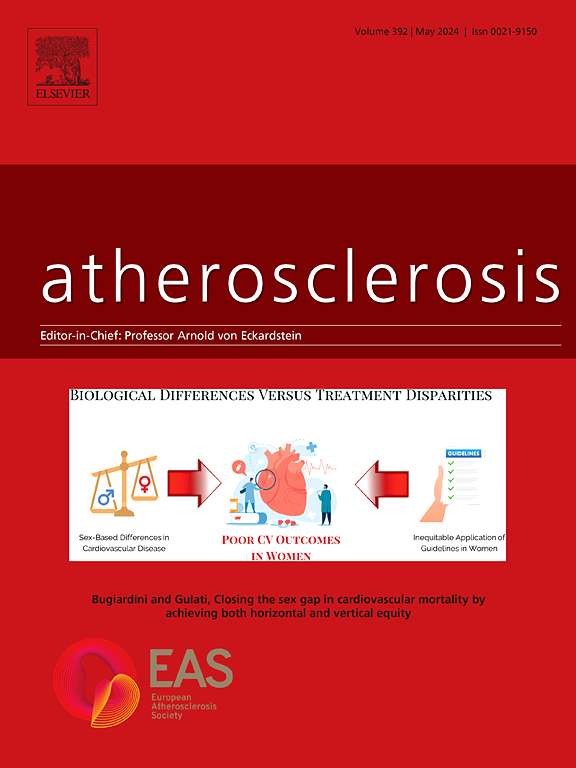Early anti-inflammatory therapy in acute myocardial infarction: A network meta-analysis of timing-dependent effects in 23 randomized trials and 28,220 patients
IF 4.9
2区 医学
Q1 CARDIAC & CARDIOVASCULAR SYSTEMS
引用次数: 0
Abstract
Background and aims
The timing of anti-inflammatory therapy in acute myocardial infarction (AMI) may be critical, yet has not been systematically assessed. While several agents have shown benefit in secondary prevention, their efficacy during the early inflammatory phase of AMI remains uncertain. This study evaluated the effectiveness of anti-inflammatory therapies in AMI and whether early initiation within 24 h of symptom onset modifies clinical outcomes.
Methods
We conducted a network meta-analysis of 23 randomized controlled trials including 28,220 patients with AMI. Interventions included colchicine, anakinra (IL-1β inhibitor), tocilizumab (IL-6 inhibitor), varespladib (PLA2 inhibitor), losmapimod (p38 MAPK inhibitor), cyclosporine (mitochondrial pore inhibitor), and pexelizumab (complement C5 inhibitor). Primary outcomes were major adverse cardiovascular events (MACE), heart failure (HF), and ischemic events. Treatment effects were summarized as incidence rate ratios (IRRs), defined as the ratio of incidence rates between intervention and control groups. Subgroup analyses stratified trials by treatment initiation ≤24 h vs > 24 h from symptom onset.
Results
Colchicine significantly reduced MACE ([IRR] 0.71; 95 % confidence interval [CI] 0.53–0.97) and ischemic events (IRR 0.65; 95 % CI 0.43–0.98). Anakinra reduced HF events (IRR 0.38; 95 % CI 0.16–0.89). These effects were observed exclusively when treatment was initiated within 24 h. No benefit was seen with delayed therapy, and no other intervention showed clinical efficacy. Safety outcomes, including infection risk, were neutral across treatments.
Conclusions
This network meta-analysis demonstrates that anti-inflammatory therapy improves outcomes in AMI only when initiated early. Colchicine and anakinra were the only effective agents, highlighting a narrow therapeutic window and supporting a time-sensitive approach to inflammation-targeted treatment in AMI

急性心肌梗死的早期抗炎治疗:23项随机试验和28,220例患者的时间依赖性效应网络荟萃分析
背景和目的急性心肌梗死(AMI)的抗炎治疗时机可能至关重要,但尚未系统评估。虽然一些药物在二级预防中显示出益处,但它们在AMI早期炎症期的疗效仍不确定。本研究评估了抗炎治疗在AMI中的有效性,以及在症状出现24小时内早期开始治疗是否会改变临床结果。方法对23项随机对照试验,包括28,220例AMI患者进行网络荟萃分析。干预措施包括秋水仙碱、阿那金(IL-1β抑制剂)、托珠单抗(IL-6抑制剂)、varespladib (PLA2抑制剂)、losmapimod (p38 MAPK抑制剂)、环孢素(线粒体孔抑制剂)和pexelizumab(补体C5抑制剂)。主要结局是主要不良心血管事件(MACE)、心力衰竭(HF)和缺血性事件。治疗效果以发生率比(IRRs)总结,定义为干预组与对照组发病率之比。亚组分析按治疗开始≤24 h vs >分层试验;症状出现后24小时。结果秋水仙碱显著降低MACE ([IRR] 0.71;95%可信区间[CI] 0.53-0.97)和缺血事件(IRR 0.65;95% ci 0.43-0.98)。阿那金降低HF事件(IRR 0.38;95% ci 0.16-0.89)。这些影响仅在24小时内开始治疗时观察到。延迟治疗未见任何益处,其他干预措施也未显示临床疗效。安全性指标,包括感染风险,在不同治疗中均为中性。结论:该网络荟萃分析表明,抗炎治疗只有在早期开始时才能改善AMI的预后。秋水仙碱和阿那白是唯一有效的药物,突出了狭窄的治疗窗口,并支持一种时间敏感的方法来治疗AMI的炎症靶向治疗
本文章由计算机程序翻译,如有差异,请以英文原文为准。
求助全文
约1分钟内获得全文
求助全文
来源期刊

Atherosclerosis
医学-外周血管病
CiteScore
9.80
自引率
3.80%
发文量
1269
审稿时长
36 days
期刊介绍:
Atherosclerosis has an open access mirror journal Atherosclerosis: X, sharing the same aims and scope, editorial team, submission system and rigorous peer review.
Atherosclerosis brings together, from all sources, papers concerned with investigation on atherosclerosis, its risk factors and clinical manifestations. Atherosclerosis covers basic and translational, clinical and population research approaches to arterial and vascular biology and disease, as well as their risk factors including: disturbances of lipid and lipoprotein metabolism, diabetes and hypertension, thrombosis, and inflammation. The Editors are interested in original or review papers dealing with the pathogenesis, environmental, genetic and epigenetic basis, diagnosis or treatment of atherosclerosis and related diseases as well as their risk factors.
 求助内容:
求助内容: 应助结果提醒方式:
应助结果提醒方式:


